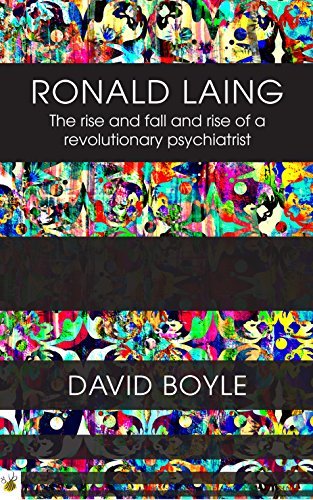
The radical psychiatrist R. D. Laing took the world by storm in the 1960s and 1970s with his ideas about madness, families and people’s need for authenticity. At the height of his fame he could fill stadiums like Bob Dylan, and often did so. He became an icon of the movement that held psychiatry to be an agency of repression, his phrases on a million hippy T-shirts. Then he fell from grace, flung out of the medical profession, and his influence has been waning since. His basic ideas have been regarded as having been discredited. Yet, despite this, his influence is also everywhere - but largely unnoticed and unremarked. This book tells the extraordinary human story of his struggle, first with the authorities as a psychiatrist in the army and then a series of mental hospitals. It explains his extraordinary influence in the context of the upheavals of those psychedelic days - and it looks at what we can still learn from Laing today. Boyle finds he still has an unexpectedly potent message.
Author
David Boyle is the author of Blondel’s Song: The Capture, Imprisonment and Ransom of Richard the Lionheart, and a series of books about history, social change and the future. His book Authenticity: Brands, Fakes, Spin and the Lust for Real Life helped put the search for authenticity on the agenda as a social phenomenon. The Tyranny of Numbers and The Sum of Our Discontent predicted the backlash against the government’s target culture. Funny Money launched the time banks movement in the UK. David is an associate of the new economics foundation, the pioneering think-tank in London, and has been at the heart of the effort to introduce time banks to Britain as a critical element of public service reform - since when the movement has grown to more than 100 projects in the UK. He is also the founder of the London Time Bank network and co-founder of Time Banks UK. He writes about the future of volunteering, cities and business. His work on the future of money has also been covered in books and pamphlets like Why London Needs its own Currency (nef, 2000), Virtual Currencies (Financial Times, 2000), The Money Changers: Currency reform from Aristotle to e-cash (Earthscan, 2002) and The Little Money Book (Alastair Sawday, 2003). He has written for many national newspapers and magazines, and edited a range of magazines including Town & Country Planning and Liberal Democrat News. He is the editor of Radical Economics. He lives in Crystal Palace, in south London, with Sarah and Robin (two years old). He is a member of the Federal Policy Committee of the Liberal Democrats and he stood for Parliament in Regents Park and Kensington North in 2001.